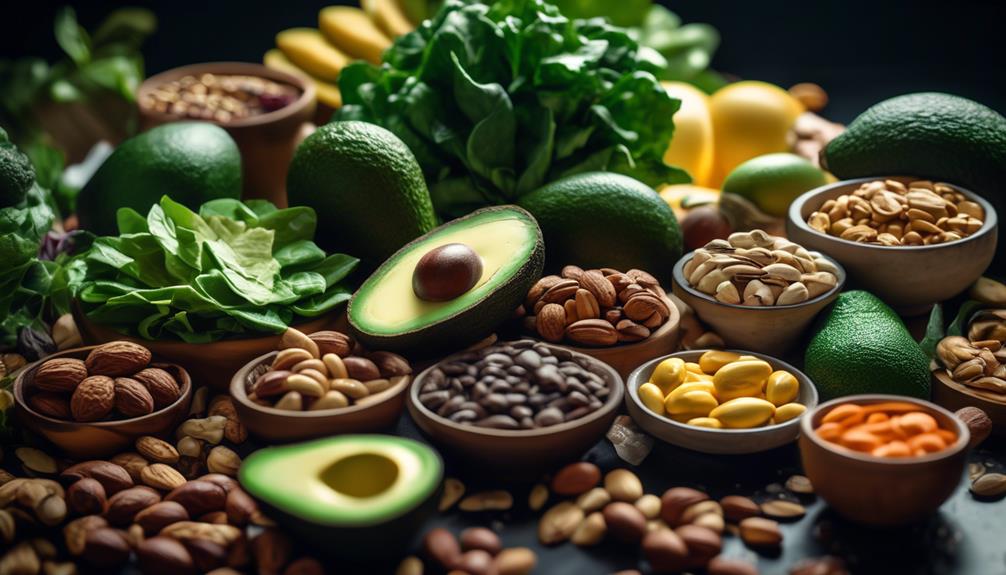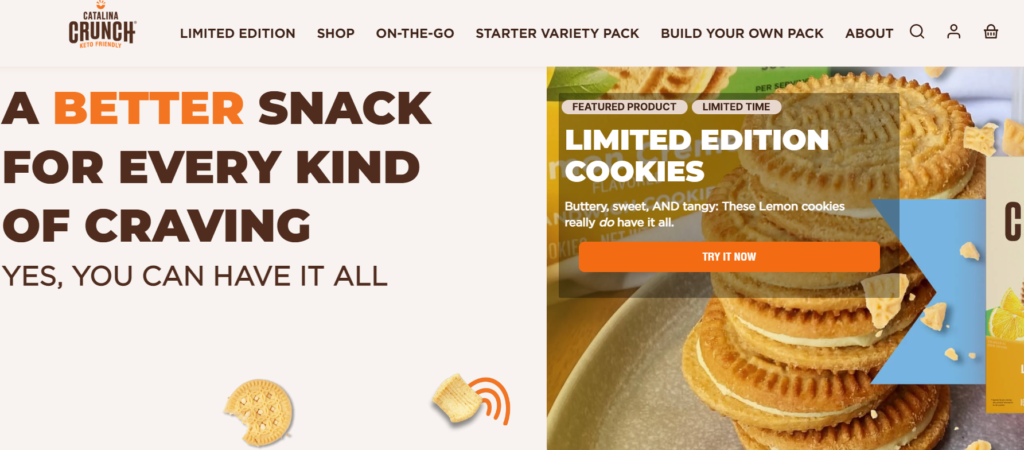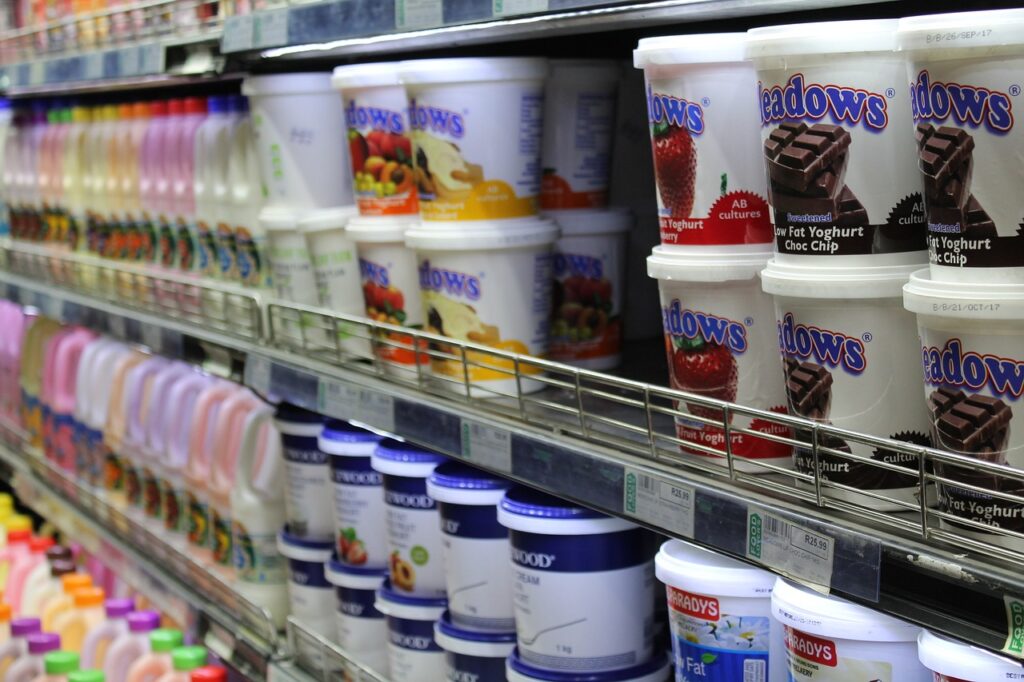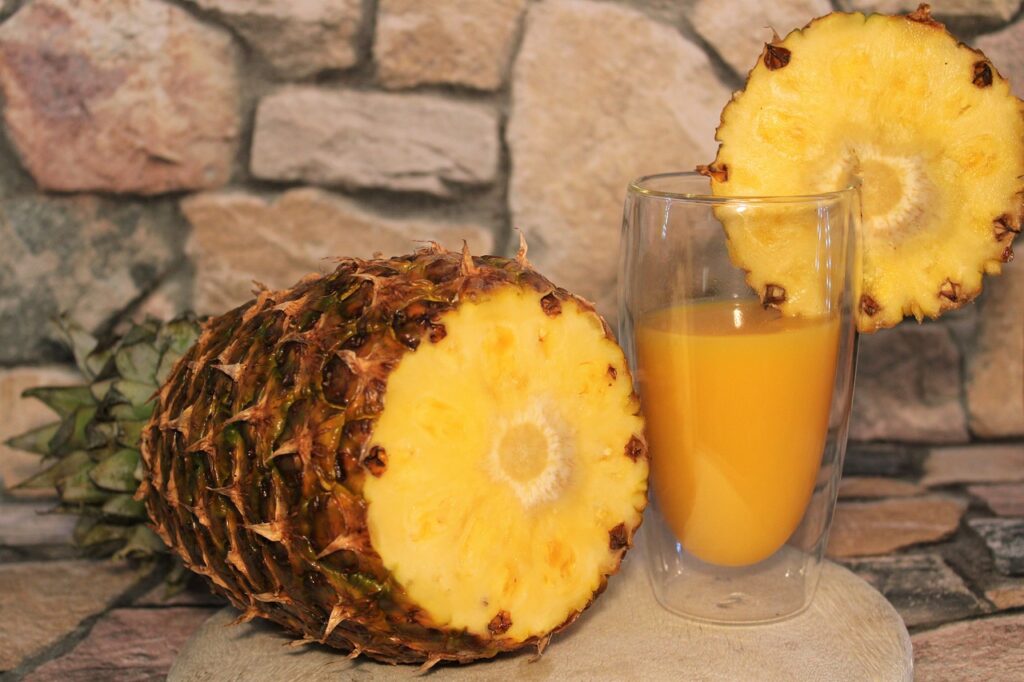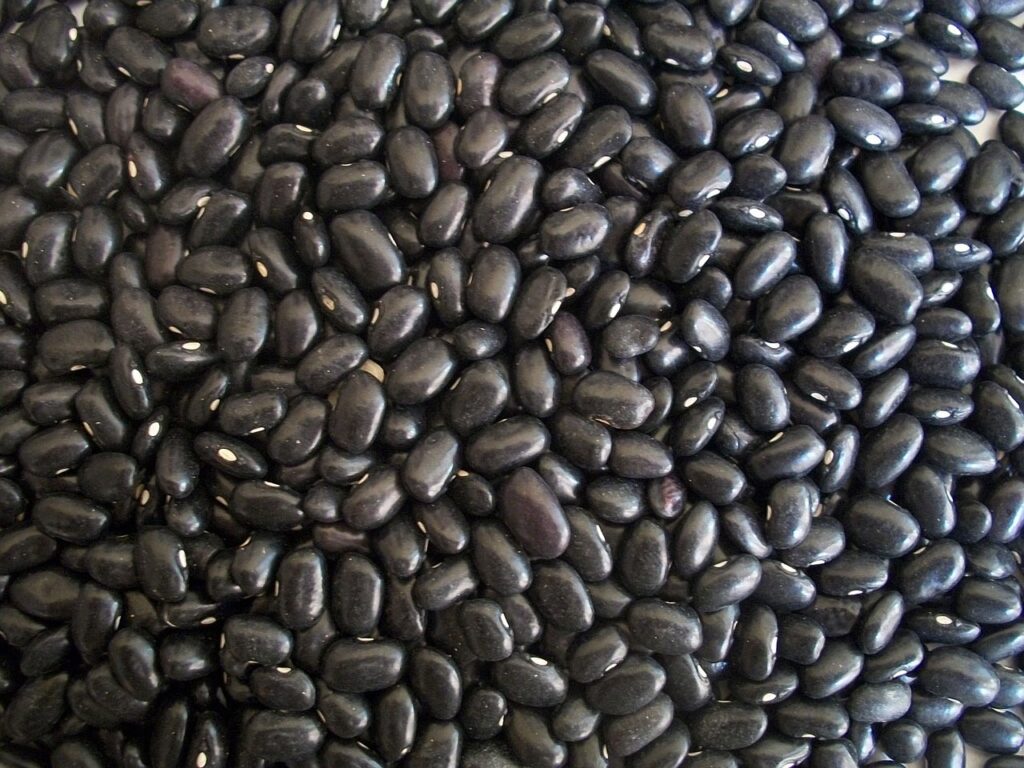Are you on a dairy-free keto diet and wondering about the essential vitamins you need for success? Well, let's just say that there are a few key nutrients that you definitely don't want to overlook.
These vitamins play a crucial role in maintaining your overall health and well-being, especially when you're following a restrictive diet. But what are they exactly? And how can you ensure that you're getting enough of them?
We're about to uncover the answers and provide you with some valuable insights that will help you on your dairy-free keto journey. So, buckle up and get ready to discover the essential vitamins that can make all the difference in your success.
Vitamin B12
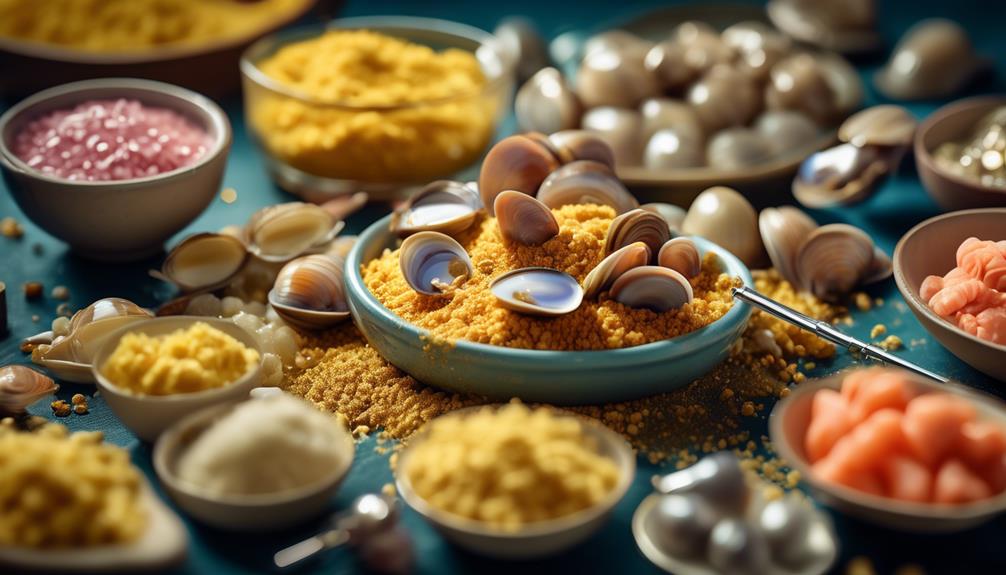
To ensure optimal body functioning, it's essential to include Vitamin B12-rich foods such as salmon, beef, mussels, and pork in your dairy-free keto diet. Vitamin B12 is an essential nutrient required for various bodily functions. It plays a crucial role in the production of red blood cells, DNA synthesis, and proper functioning of the nervous system.
If you follow a dairy-free keto diet, it can be challenging to obtain enough Vitamin B12, as it's commonly found in animal-derived products. However, there are still plenty of options available to meet your B vitamin needs. Incorporating foods like salmon, beef, mussels, and pork into your diet can help boost your Vitamin B12 intake. These foods aren't only rich in B12 but also provide other essential nutrients.
If you prefer dairy-free alternatives, fortified nutritional yeasts, bread, and fortified cereals can be excellent sources of Vitamin B12. These fortified products are specifically designed to provide essential nutrients, including B vitamins, to individuals following a dairy-free diet.
In some cases, it may be challenging to meet your Vitamin B12 needs through diet alone, especially for those following a strict dairy-free keto diet. In such situations, supplementation may be necessary. Consult with a healthcare professional to determine the appropriate dosage and form of Vitamin B12 supplementation for you.
Vitamin K2
If you're looking to maintain optimal bone health and regulate calcium levels while following a dairy-free keto diet, it's important to understand the role of Vitamin K2. This essential vitamin not only supports bone health but also plays a crucial role in heart health by reducing the risk of arterial calcification.
Here are some key points to keep in mind:
- Limited dairy products on a keto diet: The keto diet limits the consumption of dairy products, which are a common source of Vitamin K2. Therefore, it's important to find alternative sources of this vitamin.
- Non-dairy sources of Vitamin K2: Foods like natto, sauerkraut, and certain fermented soy products can provide Vitamin K2 for those following a dairy-free keto diet. These options can help ensure you're getting enough of this vital nutrient.
- Consider Vitamin K2 supplements: If you're unable to meet your Vitamin K2 needs through food sources alone, supplements can be considered. Consult with a healthcare professional to determine the appropriate dosage for your specific needs.
- Vitamin D deficiency: It's worth noting that Vitamin K2 works synergistically with Vitamin D in the body. If you're supplementing with Vitamin D due to a deficiency, adding Vitamin K2 may enhance its benefits.
Vitamin A
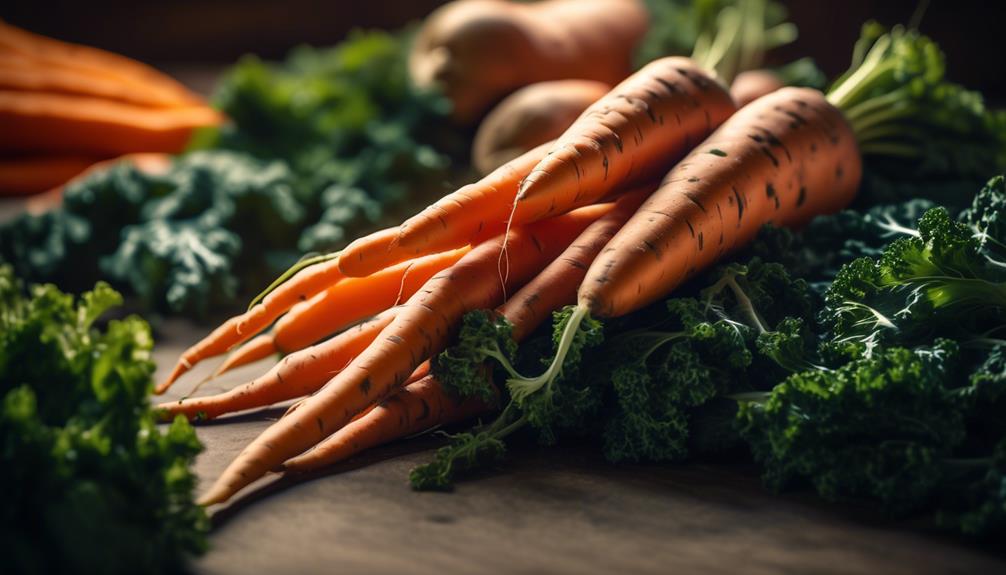
To ensure dairy-free keto success, it's important to understand the benefits of vitamin A and the food sources that provide this essential nutrient.
Vitamin A supports various functions in the body, such as vision, immune function, and skin health.
You can obtain vitamin A from foods like liver, leafy greens, orange-colored fruits, and vegetables.
Benefits of Vitamin A
Vitamin A, an essential nutrient for overall well-being, supports vision, immune function, and skin health. This vital vitamin also plays a role in cell differentiation, which is crucial for growth and development.
To reap the benefits of Vitamin A while following a dairy-free keto diet, consider incorporating the following foods into your meals:
- Liver: This organ meat is a powerhouse of nutrients, including Vitamin A. Just a small serving can provide you with a significant amount of this essential vitamin.
- Egg yolks: Rich in healthy fats and proteins, egg yolks are also a good source of Vitamin A.
- Dark leafy greens: Vegetables like spinach and kale aren't only low in carbs but also packed with Vitamin A. They make a great addition to salads or can be sautéed with a little olive oil.
- Supplements: If you struggle to meet your Vitamin A needs through food alone, consider talking to your healthcare provider about supplement options.
Food Sources of Vitamin a
Looking to incorporate more Vitamin A into your dairy-free keto diet? There are plenty of food sources that can help you meet your Vitamin A needs.
Leafy green vegetables like kale, spinach, and collard greens are excellent options. These greens aren't only low in carbs but also packed with essential nutrients, including Vitamin A.
Other vegetables like carrots, sweet potatoes, and butternut squash are also rich in this vitamin. If you're open to including animal products in your diet, liver, eggs, and cod liver oil are great sources of Vitamin A.
Additionally, consuming orange and yellow fruits like mangoes, apricots, and cantaloupe can contribute to your Vitamin A intake. And don't forget about spices like red bell peppers, paprika, and cayenne pepper, which can add a boost of Vitamin A to your dairy-free keto meals.
Vitamin C
Including vitamin C-rich foods in your dairy-free keto diet can boost your immune function and support the production of collagen for healthy skin and joints. Here are four reasons why vitamin C is essential for your dairy-free keto journey:
- Immune support: Vitamin C is well-known for its immune-boosting properties. It helps strengthen your immune system by supporting the production of white blood cells, which are crucial for fighting off infections and diseases.
- Collagen production: Collagen is a protein that provides structure to your skin, joints, and other connective tissues. Vitamin C plays a vital role in the production of collagen, helping to maintain the health and integrity of these tissues.
- Antioxidant protection: Vitamin C is a powerful antioxidant that helps protect your cells from damage caused by harmful free radicals. This antioxidant activity not only supports your overall health but also helps prevent oxidative stress, which has been linked to chronic diseases.
- Enhanced iron absorption: If you follow a plant-based dairy-free keto diet, getting enough iron can be a challenge. Fortunately, vitamin C can enhance the absorption of iron from plant-based sources, such as leafy greens and legumes. Including vitamin C-rich foods with your iron-rich meals can help ensure you're getting the most out of your plant-based iron sources.
To ensure you're meeting your daily vitamin C requirements, consider including citrus fruits, strawberries, bell peppers, and broccoli in your dairy-free keto meals. If dietary intake is insufficient, you may also consider supplementing with vitamin C to support your overall health and well-being.
Vitamin E
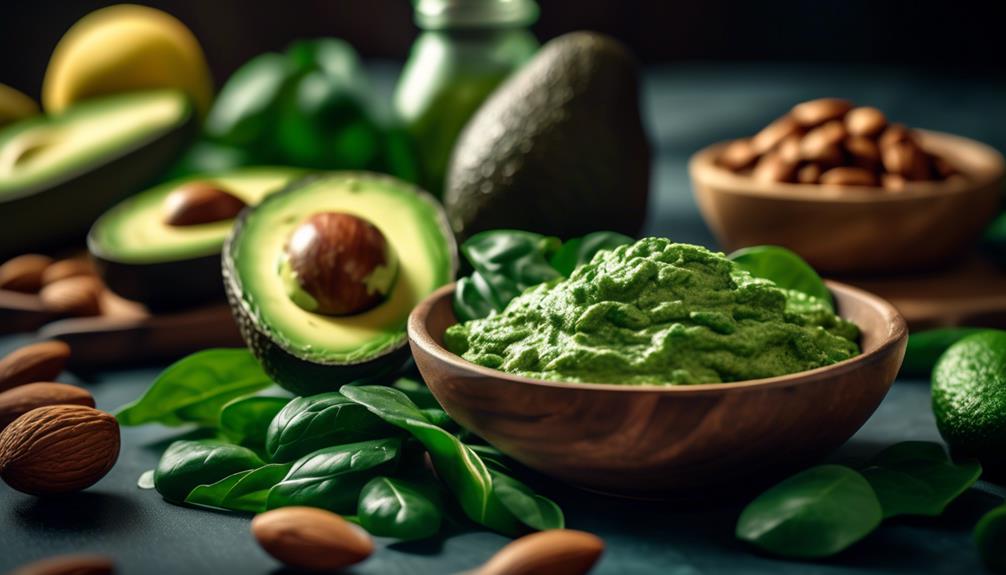
Now let's talk about the benefits of Vitamin E on a dairy-free keto diet.
Vitamin E is an essential nutrient that acts as a powerful antioxidant, protecting your cells from damage.
It also plays a role in immune function and helps maintain healthy skin.
Good sources of Vitamin E on this diet include almonds, sunflower seeds, spinach, and avocados.
Aim for the daily recommended intake to support your overall health and well-being.
Benefits of Vitamin E
Vitamin E offers numerous benefits to support your overall health and well-being. Here are some of the key benefits of incorporating Vitamin E into your diet:
- Acts as an antioxidant: Vitamin E acts as a powerful antioxidant, protecting your cells from damage caused by free radicals. This is especially important for individuals on a dairy-free keto diet, as it helps counterbalance the increased production of free radicals during ketosis.
- Supports immune function: Vitamin E plays a crucial role in supporting your immune system, helping your body fight off infections and stay healthy.
- Promotes skin health: Vitamin E is known for its ability to promote healthy skin. It may help reduce the risk of chronic diseases and support the maintenance of a youthful complexion.
- Supports eye health: Studies have suggested that Vitamin E may play a role in maintaining good eye health and reducing the risk of age-related macular degeneration.
Incorporating Vitamin E-rich foods such as almonds, spinach, and avocados into your dairy-free keto diet can help ensure you're getting the benefits of this essential vitamin. Adding a tablespoon of coconut oil to your meals can also provide a source of healthy fats and support the absorption of fat-soluble vitamins like Vitamin E.
Food Sources of Vitamin E
To ensure you're getting an adequate intake of Vitamin E on a dairy-free keto diet, focus on incorporating foods rich in this essential vitamin.
Nuts, seeds, leafy greens, and avocados are keto-friendly food sources that are packed with Vitamin E. Almonds and sunflower seeds are excellent non-dairy options, while spinach and Swiss chard are great leafy greens to include in your diet.
Adding vitamin E-rich oils like sunflower oil or olive oil to your cooking can also help boost your intake. Additionally, including foods like broccoli, kiwi, and mango can provide a good amount of Vitamin E.
If you find it challenging to meet your vitamin E requirements through food alone, consider adding vitamin E supplements to your routine.
Daily Recommended Intake
To ensure you meet your daily recommended intake of vitamin E, it's important to incorporate foods and supplements rich in this essential nutrient into your dairy-free keto diet.
Vitamin E acts as an antioxidant, protecting cells from damage and supporting immune function.
Here are four key points to consider:
- Recommended Daily Intake: For adults, the recommended daily intake of vitamin E is 15 mg.
- Food Sources: Good sources of vitamin E include almonds, sunflower seeds, spinach, and avocados. These can easily be incorporated into your keto-approved meals.
- Rare Deficiency: Vitamin E deficiency is rare, but it's still crucial to ensure adequate intake to avoid potential nerve and muscle damage.
- Supplementation: If needed, supplementation can help meet your daily recommended intake of vitamin E.
Omega-3 Fatty Acids
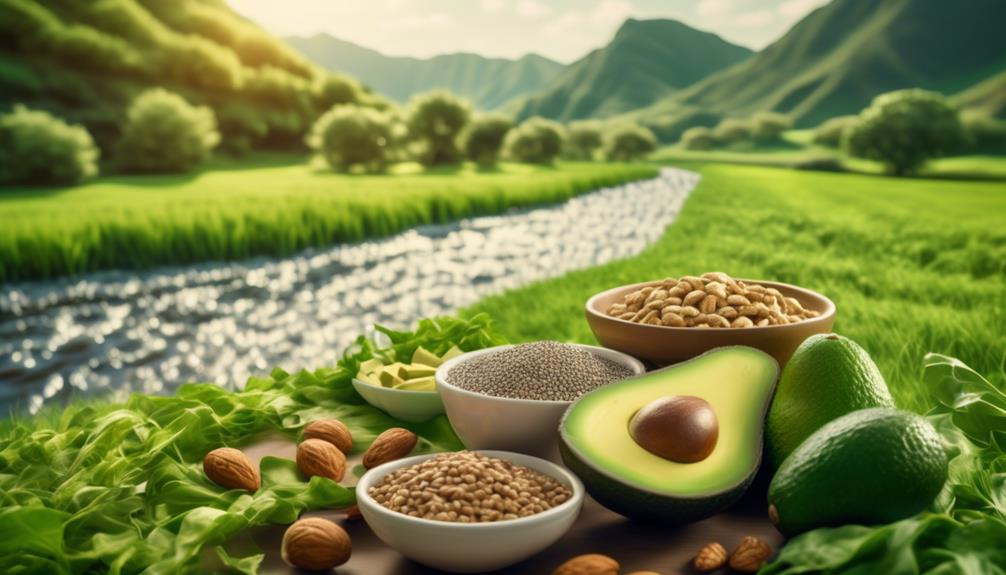
Incorporating omega-3 rich foods into your dairy-free keto diet is essential for supporting overall health and well-being. Omega-3 fatty acids play a crucial role in heart health and inflammation regulation. These essential fats have been shown to reduce the risk of heart disease by lowering triglyceride levels, reducing blood pressure, and preventing the formation of blood clots.
Sources of omega-3 fatty acids include fatty fish like salmon and mackerel, flaxseeds, chia seeds, and walnuts. These foods aren't only rich in omega-3s but also fit well within a dairy-free keto diet.
Omega-3 fatty acids aren't only beneficial for heart health but also for brain function. They can support cognitive function, improve memory, and may even help reduce the risk of neurodegenerative diseases such as Alzheimer's. Additionally, these healthy fats have anti-inflammatory properties, which can be particularly beneficial for individuals following a dairy-free keto diet, as inflammation can be a common concern.
If it's challenging to incorporate enough omega-3 rich foods into your diet, consider adding omega-3 supplements to ensure adequate intake. Look for high-quality fish oil or algae-based supplements that are specifically formulated to be dairy-free and keto-friendly.
Zinc
Including zinc-rich foods in your dairy-free keto diet is crucial for supporting immune function and promoting overall health. Zinc is an essential mineral that plays a vital role in various bodily functions. Here are four reasons why you should make sure you're getting enough zinc on a dairy-free keto diet:
- Immune function: Zinc is known for its immune-boosting properties. It helps to strengthen your immune system, making it more resilient against infections and illnesses.
- Wound healing: Zinc is involved in the process of wound healing. It helps to promote the growth of new cells and tissues, allowing wounds to heal faster and more effectively.
- Growth and development: Zinc is particularly important during pregnancy, childhood, and adolescence. It supports normal growth and development, ensuring that you reach your full potential.
- Preventing deficiencies: A zinc deficiency can have serious consequences. It can lead to impaired immune function, decreased appetite, and even hair loss. By including zinc-rich foods in your diet, you can prevent these deficiencies and maintain optimal health.
Some excellent sources of zinc that are compatible with a dairy-free keto diet include beef, lamb, pumpkin seeds, and chickpeas. If you struggle to meet your zinc needs through diet alone, consider consulting with a healthcare professional about zinc supplementation. Don't neglect this essential mineral, as it plays a vital role in maintaining your health on a dairy-free keto diet.
Selenium
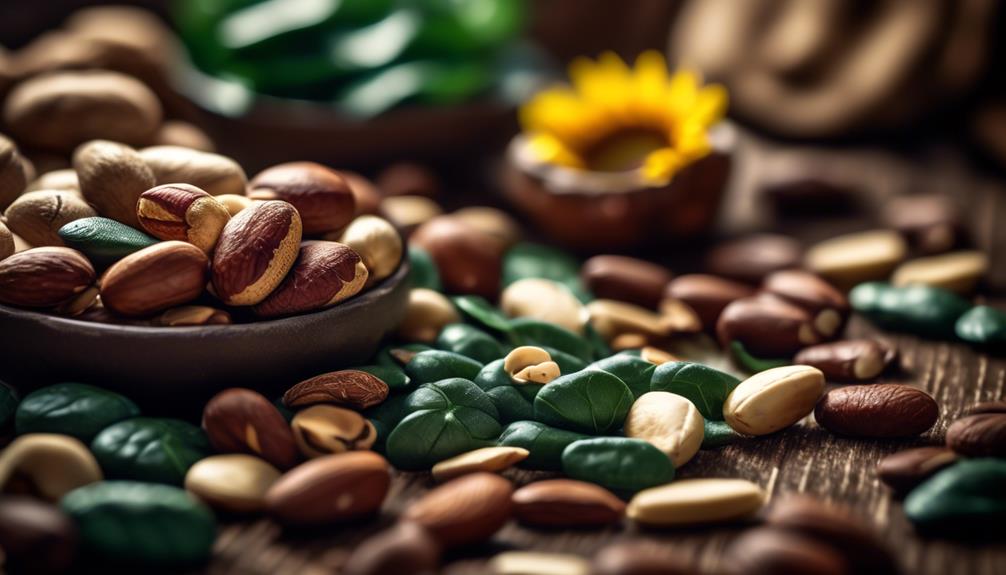
After ensuring you're getting enough zinc on your dairy-free keto diet, it's important to also focus on incorporating selenium-rich foods or supplementation to support thyroid function and immune health. Selenium is an essential mineral that plays a vital role in various bodily functions. It's crucial for the proper functioning of the thyroid gland, which regulates metabolism and hormone production. Additionally, selenium is essential for a strong immune system and acts as a powerful antioxidant, reducing inflammation and protecting against oxidative stress.
To ensure you're meeting your daily selenium requirements, consider incorporating foods rich in this essential mineral into your dairy-free keto diet. Brazil nuts are an excellent source of selenium, with just one nut providing more than the recommended daily intake. Sunflower seeds are another keto-friendly option that can help you meet your selenium needs. Organ meats such as liver and kidney are also rich in selenium, making them a nutritious addition to your diet.
A deficiency in selenium can lead to thyroid dysfunction and a weakened immune response. It may also contribute to conditions such as high blood pressure and weakened bones and teeth. Therefore, it's essential to prioritize selenium intake on your dairy-free keto journey. If you're unable to get enough selenium from food sources, consider supplementation under the guidance of a healthcare professional to ensure you're meeting your daily requirements.
Iodine
To ensure the success of your dairy-free keto diet, it's important to understand the importance of iodine and include iodine-rich foods in your meals.
Iodine is essential for thyroid function and metabolism regulation.
Sea vegetables like seaweed and algae, as well as seafood like cod and shrimp, are excellent sources of iodine that can be incorporated into your dairy-free keto diet.
Importance of Iodine
To maintain proper thyroid function and regulate your metabolism on a dairy-free keto diet, it's crucial to ensure you consume iodine-rich foods like seaweed, fish, and eggs. Iodine plays a vital role in supporting thyroid health, which in turn helps regulate your metabolism.
Here's why iodine is important for dairy-free keto success:
- Thyroid function: Iodine is a key component of thyroid hormones, which are responsible for regulating metabolism. Without sufficient iodine, your thyroid may not function optimally, leading to weight gain and fatigue.
- Immune system support: Iodine helps support a healthy immune system, which is crucial for overall health and well-being.
- Digestive problems prevention: Adequate iodine levels can help prevent digestive problems, such as constipation and bloating.
- Overall health: Maintaining proper iodine levels is essential for overall health and well-being on a dairy-free keto diet.
To ensure you're getting enough iodine, include iodine-rich foods like seaweed salad, nori, and cod in your dairy-free keto meal plan. Regularly checking iodine levels and considering supplementation if necessary can also support your overall health on a dairy-free keto diet.
Iodine-Rich Food Sources
Including iodine-rich foods in your dairy-free keto meal plan is essential for maintaining optimal thyroid function and supporting overall health on this dietary approach.
Iodine is a crucial mineral that plays a vital role in the production of thyroid hormones, which regulate metabolism and energy levels in your body.
Sea vegetables such as kelp, nori, and dulse are excellent sources of iodine and can be easily incorporated into your meals. Additionally, seafood like shrimp, cod, and tuna are rich in iodine.
If you prefer plant-based options, you can opt for iodized salt, which is fortified with iodine. Just a quarter teaspoon of iodized salt can provide you with a significant amount of this essential mineral.
Potassium
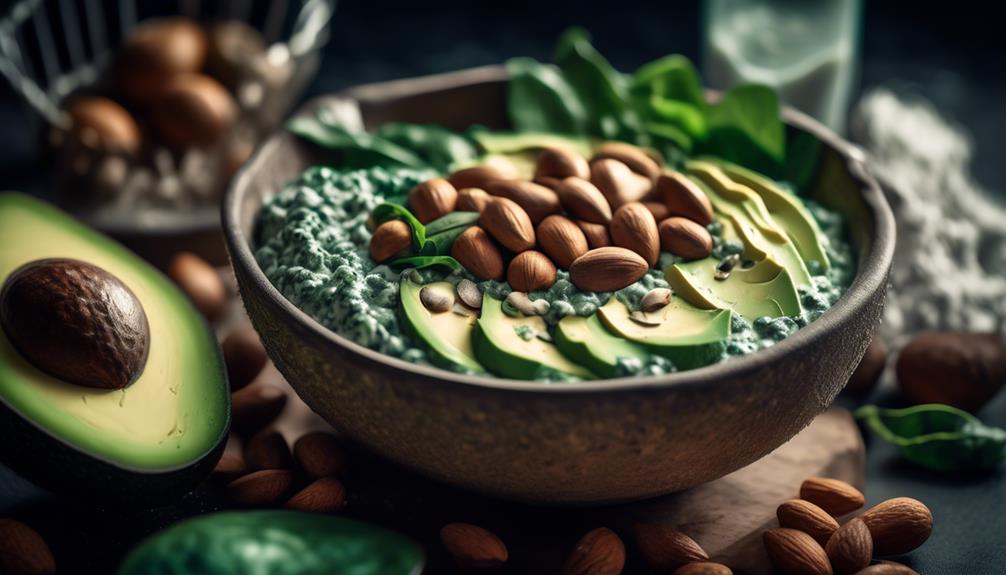
Potassium plays a crucial role in maintaining healthy nerve and muscle function, regulating heart rhythm, and balancing fluid levels in the body. As a keto dieter following a dairy-free diet, it's important to ensure you're getting enough potassium to support these vital functions.
Here are some key facts about potassium for you to keep in mind:
- Potassium-rich foods: Incorporating potassium-rich foods into your dairy-free keto diet can help you meet your daily potassium needs. Avocados are an excellent source of potassium, with about 485 milligrams per medium-sized fruit. Leafy greens like spinach and kale are also great options, providing around 150-250 milligrams per cup. Additionally, mushrooms are a potassium-rich vegetable, offering approximately 200-300 milligrams per cup.
- Regulating blood pressure: Adequate potassium intake is crucial for maintaining healthy blood pressure levels. Studies have shown that consuming potassium-rich foods can help lower blood pressure and reduce the risk of cardiovascular diseases.
- Supplementation: If necessary, you may consider incorporating potassium-rich supplements into your dairy-free keto diet. However, it's essential to consult with a healthcare professional before starting any new supplements to ensure proper dosage and avoid potential interactions with medications.
- Balancing electrolytes: Following a keto diet can lead to electrolyte imbalances, including low potassium levels. Ensuring sufficient potassium intake can help restore electrolyte balance and prevent symptoms such as muscle cramps and fatigue.
Choline
Choline is an essential nutrient that plays a crucial role in memory, mood, and muscle function, making it an important consideration for dairy-free keto dieters. Choline is particularly important for brain development, as it supports the formation of cell membranes and aids in the production of neurotransmitters that are involved in memory and cognition.
On a keto diet, which eliminates certain choline-rich foods like potatoes and whole grains, it's important to ensure an adequate intake of choline. Including foods such as beef, fish, chicken, and eggs can help meet your choline needs. These foods aren't only rich in choline but also provide important nutrients like protein and healthy fats that are essential for a successful dairy-free keto diet.
Choline is also involved in nerve and muscle function, and it plays a role in regulating heart rate and blood sugar levels. Adequate choline intake can support optimal muscle function and help maintain a healthy nervous system.
To prevent choline deficiency, which can lead to symptoms such as fatigue, muscle weakness, and memory problems, it's crucial to include choline-rich foods in your dairy-free keto diet. By incorporating foods like beef, fish, chicken, and eggs, you can ensure that you're meeting your choline needs and setting yourself up for dairy-free keto success.
Conclusion
In conclusion, ensuring adequate intake of essential vitamins is crucial for success on a dairy-free keto diet. Vitamin B12, K2, A, C, E, selenium, iodine, potassium, and choline are all important for overall health and to prevent deficiencies.
Incorporating thiamin-rich foods and considering supplements can help address common deficiencies, like thiamin (B1), which is essential for energy metabolism and nerve function.
Remember, a well-rounded approach to nutrition is key to achieving optimal health on a dairy-free keto diet. As they say, 'Vitamins are the spice of life!'
'Vitamins are the spice of life, adding essential nutrients to support overall well-being and vitality.'

